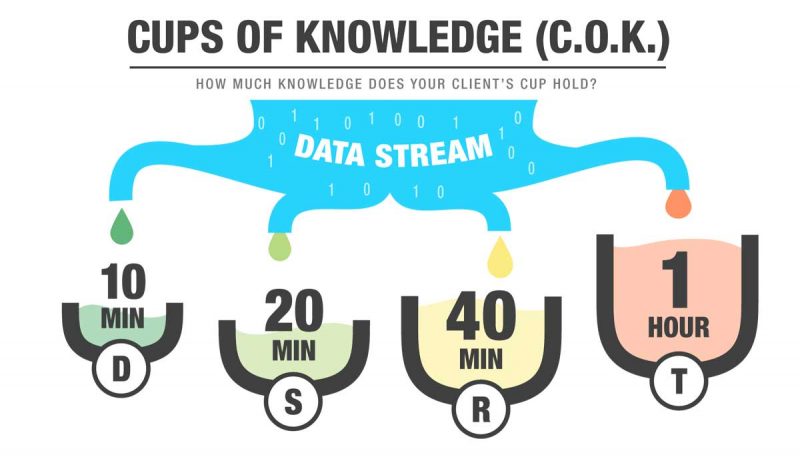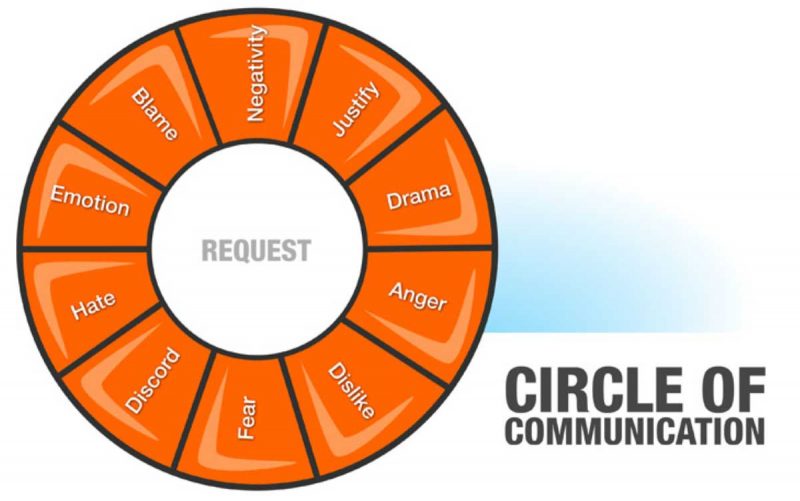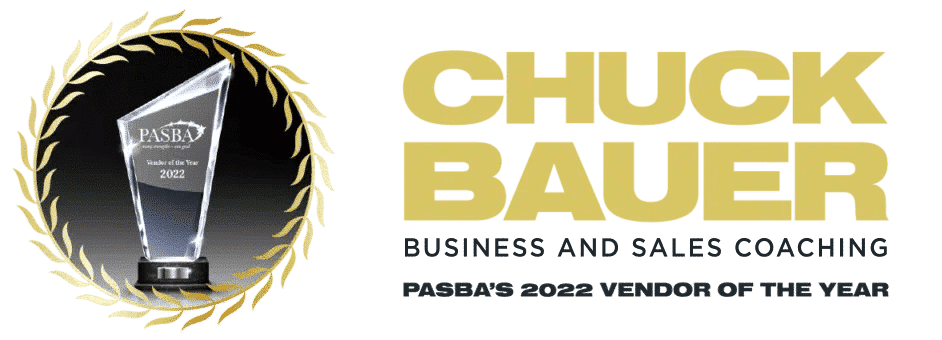Advanced listening and vocabulary training is one of the very first things I teach to any group, individual, or high-powered salesperson. Our SalesMastery training program has over 875 slides and this is one of the first topics that we teach. Why? Because advanced listening and vocabulary training are at the foundation of mastering communication.
Statistics say that 78% of our day is spent communicating. However, we communicate at a 30% efficiency rate and a 70% inefficiency rate. In all the onsite, hands-on training that I do on a weekly basis, this is so true. What do we find from these statistics?
7 out of 10 messages are misunderstood, mistaken, or missed.
As an example, what do you think LOL stands for? I’m sure it stands for Laugh Out Loud—but if we go to Scottsdale, Arizona, and visit one of my client companies with over nine-hundred employees, they would tell you it stands for Lots Of Love. Communication is all about different strokes for different folks and we have to remain aware of that.
The Need to Be Heard
One of the things I love about listening is that it’s easy to do—especially if you get your head wrapped around it and see how serious it is. We know from studies that the number one need of a human being is to be heard and it’s an easy distinction for you in any sales, executive leadership, or management position.
Write this down: the number one need of a human being as it relates to communication is the need is to be heard.
Our divorce rate is 50%-to-52% across the United States; in Dallas, it’s actually a little higher. We have to be on our toes. My wife and I are on our toes. We are actively being good communicators and working on listening because we don’t want to become part of that statistic. The same applies to dysfunctional children—why do we have this going on? Because children are not being heard.
So by mastering listening, you will set a higher standard and become distinctive in the sales world because your listening skills will set you apart.
Stop Talking & Start Listening

I see it all the time when I do live sales coaching on phone calls, major presentations, on one-on-ones, face-to-face, and in virtual meetings—there’s too much talking. The following example is very simple and happens frequently.
I will be listening live to a salesperson’s exchange between him or her and their client or prospect. What do I hear every once in a while? I hear the prospect choking like they are choking on a chicken bone! It actually sounds like this: “Uh,” “Uh,” “Uh.”
At the end of the call, I say to the salesperson “Hey, did you hear that person? They were choking on the phone.” And the salesperson goes “What do you mean, they were choking?”
I say “They were choking” and I’ll play back the tape so we can hear it. “You should call 911 ‘cause they are choking on a chicken bone. It’s because they are trying to get a word in edgewise. You don’t know what a period is for. You don’t know how to live in silence and make silence your best friend. You’re just railroading through your presentation.”
Communication has to be two-sided. You have to be very careful about talking over the person you’re trying to communicate with. Stop talking and listen.

Master Intimacy & Master the Connection
When you master intimacy, you master the connection. This is the reality of what we do as listeners: when the client speaks 100 words to the salesperson, the salesperson will hear the first seven words then start formulating what their answer is going to be. If the client goes on to say a hundred words, the salesperson missed 90% of what was said because they are:
- Getting in a hurry.
- Interrupting the client to tell them how much they know.
- Waiting for the client or prospect to end their sentence so that they can reply.
That 90% is where you will find a lot of information on whether you can help these people with your product or service. So be quiet. Turn everything off. Silence your mind and be present in the moment when your prospect or client is speaking to you.
Don’t automatically respond. When they end a sentence, stop. Count to three before you jump in. Many times when you’re counting to three, they’re probably going to engage with something else. While they’re talking, they’re probably giving you all the closing tools you need—if you are smart enough to listen.
When the need to be heard is fulfilled, intimacy is gained and we move closer to closing the deal.
Don’t just have good relationships with people, but be a great listener. Build intimate relationships with them so that they trust you so much that they’ll buy from you. Easy to do; easy not to do.
Communicate to Specific Personalities
We communicate in four different ways. A lot of it has to do with the personality style that we are born with. Some people will communicate in the forms of novels, some in the form of short stories, some will do laser phrases, and some will communicate in bullet points.
It’s what the client or prospect remembers that counts.
I encourage my students to use bullet points and laser phrases and be very careful about long, drawn-out short stories or novels. However, in sales, sometimes we have to tell stories. Let’s compress down the words we’re using and maybe use graphical and visual representations to make up for some words. They often say that a picture is worth a thousand words.

Getting deeper, maybe some of you have heard about these four personalities. Our modern day philosophy actually came out of Harvard University with Dr. William Moulton Marsden, who was the creator of the blood pressure cuff, the polygraph machine, and DISC. I use a different variation of DISC: Directors, Socializers, Relaters, and Thinkers.
- Directors: A person who is a director personality might only need a ten-minute presentation to make a decision. Their decision will be based on their gut feeling and their logic.
- Socializer: A socializer needs about twenty minutes of information and it’s all about how they feel about the purchase.
- Relater: A relater is an analytical thinker but they need a lot of data. Their decisions will be based on how it effects everybody else.
- Thinker: A thinker might need an hour’s worth of information because they’re searching for the worst case scenario.
So again, as a typical salesperson, you have a standard presentation, and it’s the same presentation all the way around, but to become a better communicator, we’re going to start making changes. Now, this is a very in-depth training that I teach; it’s three hours just to get into all the variables that go on in this but I wanted to give you an example that one size does not fit all people.
Are You REALLY Listening?
You have two ears and one mouth. That’s 2 vs 1! That ought to be a clue right there that we should listen twice as much as we speak. I open every meeting—whether it’s a phone call, virtual, or face-to-face meeting—by breaking the ice by saying “Tell me about you.” Then I stay quiet. I’ll even do it in front of large audiences because I want to get them talking.
Hear beyond people’s words. People make statements but there are various meanings that are behind them. Try to hear beyond what they’re saying.
When asked a question that requires a one-word answer, give them a one-word answer! Concentrate on what your communication partner is saying and, no matter what, don’t interrupt! Keep your own personal filters in check, work on your patience, and wait until the right time or offer advice or sell your prospect or client on your services.
Characteristics of Great Listeners
- Excellent Eye Contact
- Asks Questions
- Entertains Discussion
- Repeats What Was Said
- Stays Focused
- Acknowledges
- Poised
- Emotionally Controlled
- Doesn’t Interrupt
- Doesn’t Change Subject
- Under Reacts
- Says “Okay”
Characteristics of Poor Listeners
- Constantly Interrupts
- Jumps to Conclusions
- Finishes Sentences
- Changes Subject
- Impatient
- Loses Temper
- Fidgets
- Speaks Too Fast

The Circle of Communication
A lot of times, my students will get a high-conflict email from a prospect or client about something that they did or that their company did. We call that a charged-up atmosphere.
I’ll just give an example—I’ll get an email from one of my students and it’s just something that got all messy. What I’m looking for is the challenge of the salesperson or the business owner who contacts me because they are afraid of losing a piece of business, somebody’s mad at them, whatever the case may be. But the fact of the matter is, when I’m looking for this communication, I’m looking for one thing and one thing only: I’m looking for the request.
I’m not looking for the negativity; I’m reading through it in most cases. There’s justification, drama, anger, dislike, fear, discord, hate, emotion, and blame. Every time I see these big blow ups, and especially when they’re done by email, I see this. And again, this is coming from their prospects or clients. My job is to not react to any of that as the coach and find that request. And 99.9 percent of the time, that’s what I find.
So if you guys are working on high, influential, conflict resolution, don’t forget—find the request. Don’t react to the things that make up the charged-up atmosphere. Find the request. Deal with that request. Do not react to the outside of the circle.
How Well Do You Listen?
A Self-Assessment for Advanced Listening
To find out how well you actually listen to your prospects and clients, I’m going to give you seven statements. Score yourself for each of the following seven statements on a scale of 1 to 3. Give yourself a 1 if you are a beginner, 2 if you are intermediate, and 3 if you think you are advanced at the skill. 21 is the maximum possible score for this exercise.
- Do you pick up the client’s tone as well as their words? As an example, when I’m on my own personal calls or when I’m coaching on live calls, I can tell you within the first seven seconds, how much time that that prospect will give the salesperson because I can detect it in their voice. And typically it’s that they have to get off the phone immediately. They might give them five minutes, or they might give them fifteen minutes. But I am detecting that based off of people’s tone and how they say their words. 99.9 percent of all the other salespeople are just listening to the words. You can’t do that. You’ve got to be on top of this.
- Can you hear what is not being said? You’re not usually receiving an objection when people say they need to think about it; although there’s part of the population that doesn’t need to think about it, it’s just a push back from everyone else. And then the other personalities are actually bluffing you or they don’t trust you to really get into what their issue is. So you have to be able to hear what is not being said.
- Do you put yourself in your prospect or client’s shoes?
- Are you able to hear their over/under statements or misrepresentations? Basically, do you have the ear to be able to really understand when a prospect or client is over/under exaggerating, lying, fibbing, and so on?
- When a prospect or client is speaking, are you truly listening or are you getting ready to respond? Truly listening is silencing the mind, stopping it, letting it be present in the moment, and listening.
- Are you quiet for seconds at a time, creating gaps of silence on purpose?
- Do you truly recognize the critical needs of your prospect and/or client or are you just trying to make a sale?
Just remember that there are really only three levels of listening:
- You’re not listening.
- You’re listening to what they say.
- You’re listening for what they mean.
Put it onto play and making yourself more distinctive than your other competing salespeople or the other companies that you are going up against. Become one of the greatest communicators that you possibly can be. So with that, thank you for your time today, hope you enjoy the information, implement it and put it to work.



